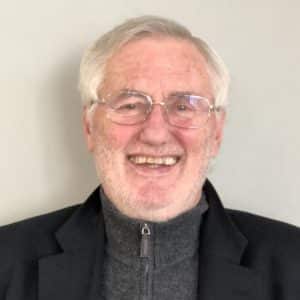
Any contact with social media or the evening news gives me a sense of déjà vu. All the noise and dissent seem a “howling at the moon” of a people having lost their collective mind. Like zombies from the post-apocalyptic drama, “The Walking Dead,” the calamity howlers prowl the land seeking those they may frighten to death. A cursory reading of American history leaves one with the feeling that this present show of populism is a rerun. The late 19th century populists known as the calamity howlers seem to have been disinterred from their graves and loosed on the nation.

Rodney Kennedy
The calamity howlers were “farmer orators” who got their name “because of their gloomy prophecies of doom and distress” as they “denounced the money lenders and railroad magnates of the East with vigor and vituperation.” For example, one of the best known of the howlers, Ignatius Donnelly, gifted with a wild imagination, stumbled upon the theory of the mythical “Atlantis,” a lost continent in the middle of the Atlantic, and immediately he exploited the theory by writing a widely read book on the subject, thus popularizing the myth, and making a wide reputation for himself.
Pick any end-time preacher/writer and the Donnelly story applies. Hal Lindsay and Tim LaHaye fill the web, the movie theatres, television, and books with theories of tribulation, rapture, and Armageddon. Dallas Theological Seminary elevates these wild theories to higher education and churns out new age calamity howlers every semester. How do we keep falling for the tired lament of calamity howlers in every age – always packaged in some fanatical religious theory about the end of the world? At least part of the answer is that doom and gloom works better in precarious economic times, but this present outbreak has impacted affluent, church-going white folk. A new look at the 19th century populist leaders may help us understand.
The description of Donnelly as “a fluent rabble-rousing orator; a master of wit and humor; a hurler of sarcasm, scorn, and denunciation; a dramatist; and an energetic fighter with a unique and exciting personality,” conjures images of Donald Trump insisting at a Phoenix Arizona rally that white people are being denied vaccinations, that the election was stolen, and that the world is against him.
But another famous calamity howler named Bloody Bridles Waite draws parallels to another figure. He said, “It is better, infinitely better, that blood show flow to the horses’ bridles than our national liberties should be destroyed.” Compare to this statement by Robert Jeffress on Fox News: “If the Democrats are successful in removing the President from office (which they will never be), it will cause a Civil War-like fracture in this Nation from which our Country will never heal.”
Waite was a profane orator considered in his time as a man slightly crazed. In Waite’s opinion, the old political parties were completely corrupt and only money propped them up. His chief interest always seemed to be agitation against every institution representing the status quo. The list of Waite imitators grows every month. Attacking the institutions has become standard political fare. The formula, as odd as it is, seems to be, “Washington is corrupt. Elect me and I will go to Washington and clean up the mess.” Every election cycle we elect, elect, elect and we remain corrupt, corrupt, corrupt.
And then there was the fiery Mary E. Lease of Kansas – a unique figure in the whole Populist protest. Rep. Marjorie Green and Rep. Lauren Boebert compare favorably. Ms. Lease thundered, “What you farmers should do is raise less corn and more hell.” Her one talent was criticizing because when she was appointed to the chairmanship of the Kansas State Board of Charities, she immediately began attacking her former friends. The Achilles’ heel of populists is the inability to shift from an agenda of criticism to actual policies and governing. Criticism by outsider renegades is beloved by audiences. When you become the elected insider, you have to deliver something more than criticism.

The Populist movement of the late 19th century has been theatrically repeated in Donald Trump and his followers. Vaudeville has returned to American politics in the juiced-up stratosphere of reality television, talk radio, and social media. We have heard and seen this drama before. All that has changed are the times and the characters. The irony is that the chief calamity howler is not a farmer from Kansas, but a multi-billionaire, shady businessman from New York. Some portion of the electorate always has a soft spot for howlers and doom and gloom evangelists. They enjoy wallowing in the depicted misery of the pouring out of the dregs of wrath upon the heathen.
When Trump’s followers were declared the “deplorables,” they wore the cognomen as a badge of honor which they were proud to bear. The Trump machine poured out emotional, bombastic, long-winded, repetitious speeches. The vigorous, pungent, at times profane, colloquial speeches of Trump are filled with incomplete sentences and incomprehensible thoughts. His followers are sincerely devoted to Trump’s total lack of principles, and in their zeal and fanatical fervor, they made the Trump campaign a religious crusade. Indeed, they felt they were marching against the pagan hordes of Muslims, feminists, socialists, liberals, and secularists.
It was only natural that they developed a persecution complex. Misfortune and persecution made the original populists bitter but courageous. Trump’s followers are not poor farmers or some fringe movement. They are from the middle class, the white middle class. They are affluent. Remember that many of the participants in the January 6 attempt to keep Trump president flew to the rally on private jets. The irony of well-off white people pretending to be persecuted, muzzled, and denied privileges is a hard sell, but it’s working. A manufactured, artificial precarity and sense of persecution has made the current batch of populists bitter, self-righteous, and as certain as ever that the nation will go to hell without the intervention of Donald Trump.
Those 19th century populists were deeply religious and convinced that they were true Christians. They poured out their lament in song and parodies of gospel hymns. As scholar Robert Gunderson reminds us, “the rugged souls who declaimed such poetry with fanatical fury were convinced that they were waging a battle thoroughly sanctioned by their Bible and their God; thus, the oratory was the oratory of a holy crusade.” Like those populists, many evangelical Christians today feel the nation has turned against them. They have put on sackcloth and ashes, pretending to sit by the banks of the River Chebar to lament, “How could we sing the Lord’s song in a foreign land?”
Calamity howlers are always the same. There’s no salvation in the howling. There’s no truthfulness in the denouncing. There’s only dissension, mistrust, suspicion, and division. The howlers predict more than they know. When you hear a calamity howler, change the channel, delete the message, and keep your senses.
Rodney Kennedy has his M.Div. from New Orleans Theological Seminary and his Ph.D. in Rhetoric from Louisiana State University. The pastor of 7 Southern Baptist churches over the course of 20 years, he pastored the First Baptist Church of Dayton, Ohio – which is an American Baptist Church – for 13 years. He is currently professor of homiletics at Palmer Theological Seminary, and interim pastor of Emmanuel Friedens Federated Church, Schenectady, New York. His sixth book – The Immaculate Mistake: How Evangelicals Gave Birth to Donald Trump – is now out from Wipf and Stock (Cascades).






